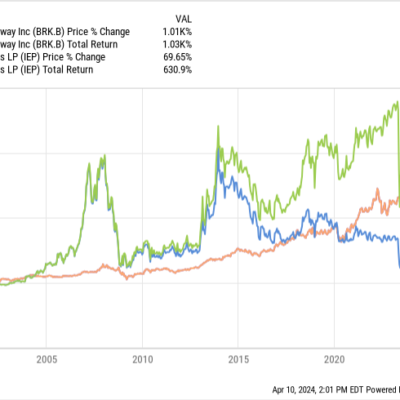Don’t fear: There’s an ETF that will ensure you don’t miss out on any high-flying stocks.
Many people are afraid of heights. Some have a fear of spiders. Others are scared of snakes. But there’s a very different kind of phobia that affects quite a few investors — the fear of missing out, also known by the acronym FOMO.
These individuals absolutely dread the idea of not buying a stock that’s skyrocketing or about to soar. If you’re in that group, fear not. Here’s the perfect Vanguard exchange-traded fund (ETF) for investors with a fear of missing out on the market’s biggest winners.
A mo-mo cure for FOMO
What if you could own nearly every stock that’s performing well in one fell swoop? That’s exactly what you can do with the Vanguard U.S. Momentum Factor ETF (VFMO 1.52%).
This ETF employs a rules-based quantitative model to analyze U.S. stocks. It invests in all stocks with strong momentum (called “mo-mo” by some investors). The fund’s managers don’t care if the stocks are large caps, mid caps, or small caps. They don’t focus on specific sectors or industries. If a stock is taking off, the Vanguard U.S. Momentum Factor ETF buys it.
As you might expect, this Vanguard ETF has itself taken off over the last 12 months, jumping over 30%. Since its inception in February 2018, the fund has delivered an average annualized gain of nearly 13.3%. At that rate, your money would double every five and half years.
Vanguard is known for its low-cost funds. The Vanguard U.S. Momentum Factor ETF is no exception with an annual expense ratio of 0.13%. The ETF’s dividend yield (currently 0.46%) more than covers those expenses.
Loaded with huge winners
The Vanguard U.S. Momentum Factor ETF is loaded with huge winners. It currently holds positions in 574 stocks. Their average earnings growth rate is a hefty 19.2%.
A quick glance at the ETF’s top holdings gives a pretty good picture of what you get with this fund. Its largest largest position is in Meta Platforms, which makes up 1.64% of the ETF’s total portfolio. Shares of the social media giant have soared more than 130% over the last 12 months.
Nvidia comes in a close second to Meta at 1.52% of the fund’s portfolio. The chip stock has vaulted more than 220% higher over the last 12 months thanks to surging demand for its GPUs.
Another artificial intelligence (AI) chipmaker, Broadcom, is the Vanguard U.S. Momentum Factor ETF’s third-largest position. Its shares have more than doubled over the last 12 months.
Don’t think the fund is overly weighted with tech stocks, though. Nearly 70% of the Vanguard ETF’s holdings are in other sectors. For example, healthcare giant Eli Lilly is its fifth-largest position, making up 1.24% of its portfolio. Lilly’s shares have jumped more than 120% over the last 12 months with strong sales growth from its type 2 diabetes drug Mounjaro and new weight loss drug Zepbound.
One legitimate fear
FOMO shouldn’t be an issue if you buy the Vanguard U.S. Momentum Factor ETF. You’ll be virtually guaranteed to own any stock that becomes the next big thing. There is one legitimate fear with the ETF, though.
The main downside to investing in stocks with tremendous momentum is that they can be priced for perfection. The average price-to-earnings ratio of the stocks owned by this Vanguard ETF is a lofty 21.3. It’s possible that this high valuation could limit how much the ETF grows. And if the overall market declines, the fund could fall especially hard.
However, the Vanguard U.S. Momentum Factor ETF model is designed to replace underperforming stocks with others that demonstrate stronger momentum. The turnover rate for the fund (as of the end of its last fiscal year on Nov. 30, 2023) was 73.4%. Just as you don’t have to be afraid of missing out on a big winner with this ETF, you don’t have to be scared of being stuck too long with a big loser either.
Randi Zuckerberg, a former director of market development and spokeswoman for Facebook and sister to Meta Platforms CEO Mark Zuckerberg, is a member of The Motley Fool’s board of directors. Keith Speights has positions in Meta Platforms. The Motley Fool has positions in and recommends Meta Platforms and Nvidia. The Motley Fool recommends Broadcom. The Motley Fool has a disclosure policy.





